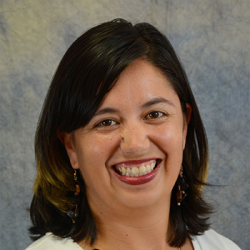
As I wrap up the semester with my students and head out to a restful and adventurous winter break, I can’t help but reflect on the year so far and where I am in my teacher practice.
Usually, I end the semester reading feedback from students, doing some formal reflection during professional development with my colleagues, and informally reflecting on my growth so far on my dark winter commute.
This year, however, I was inspired to step up my reflection game and invite you to do the same. Just as we ask our students to reflect throughout a project in a variety of ways, I think my own learning could be solidified and my passions refreshed by trying out some new forms of teacher reflection.
Here are the three I’m going to try this week:
Focus Student Reflection
Select one student; for me, it will be an English-Language Learner from a population I’ve been trying to better support this year. I’ll examine some data starting all the way back in August. I’m going to start with simply looking at their grades for things like homework completion, organization, class participation, and attendance. I might do a deep dive into their writing assignments, re-reading the four essays they’ve written so far this year.
If looking at the whole semester is daunting, I might look through their work from start to finish in one project. The guiding questions I’m going to ask myself are: How has this student changed over the course of the first semester in my class? Am I seeing the growth I hoped to see? In what areas would this student benefit from more attention or support in second semester? I’m going to end my reflection by writing a quick email to the student and their parents, telling them some things I’ve noticed about them and expressing my excitement about continuing to work with them and see them grow for the rest of the year!
Focus Skill Reflection
For this reflection, I’m excited to zero in on a skill we’ve been focusing on in class this year. At the beginning of the year I identified reading instruction as a growth area for myself. As a history teacher I am certainly a teacher of literacy and, while I’ve seen huge progress in my ability to teach writing in the past few years, I haven’t seen that same growth in reading. I’m going to print out four lessons I taught this year focusing in on reading skills: a mini-lesson about identifying an author’s point of view, a review on sourcing documents, a Structured Academic Controversy asking students to identify evidence from multiple perspectives, and a close-reading think aloud I did with a primary source text. For each lesson I’m going to reflect on if students met the intended learning target and how the lesson could be improved for future use. Hopefully I’ll be able to revise the lessons while they’re still fairly fresh in my mind, so that they can become repeatable ones I can continue to use to develop as a teacher of reading.
Teacher Joy Reflection
It shouldn’t surprise you, based on the name I gave it, that this is the reflection I am most excited for. I’m going to save it for the Sunday night before school starts again, hoping it will help me go into the new year with hope and inspiration.
In this reflective exercise, I’m going to identify something in each month of the semester that brought me joy as a teacher. It could be an interaction with a student during a project, a phone call home to celebrate growth with a family, seeing success in an assessment, or a particularly fun and engaging project launch. Then, I’m going to pull out my calendar and try to identify one opportunity each month of second semester to replicate some of that joy! My calendar is usually filled with meetings I’m worried about, grading to get done, and appointments I don’t want to go to. Why not calendar in some joy too?!

